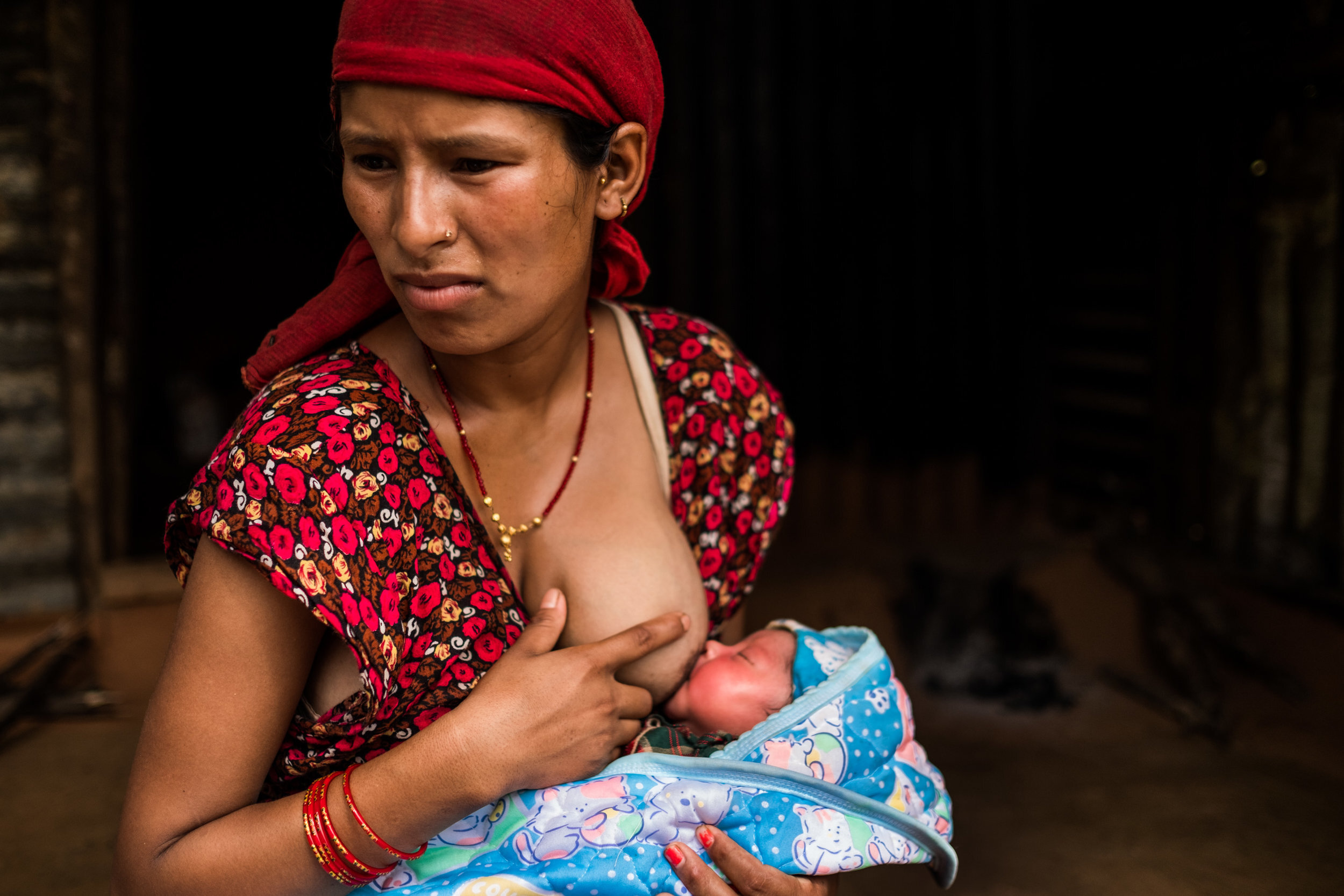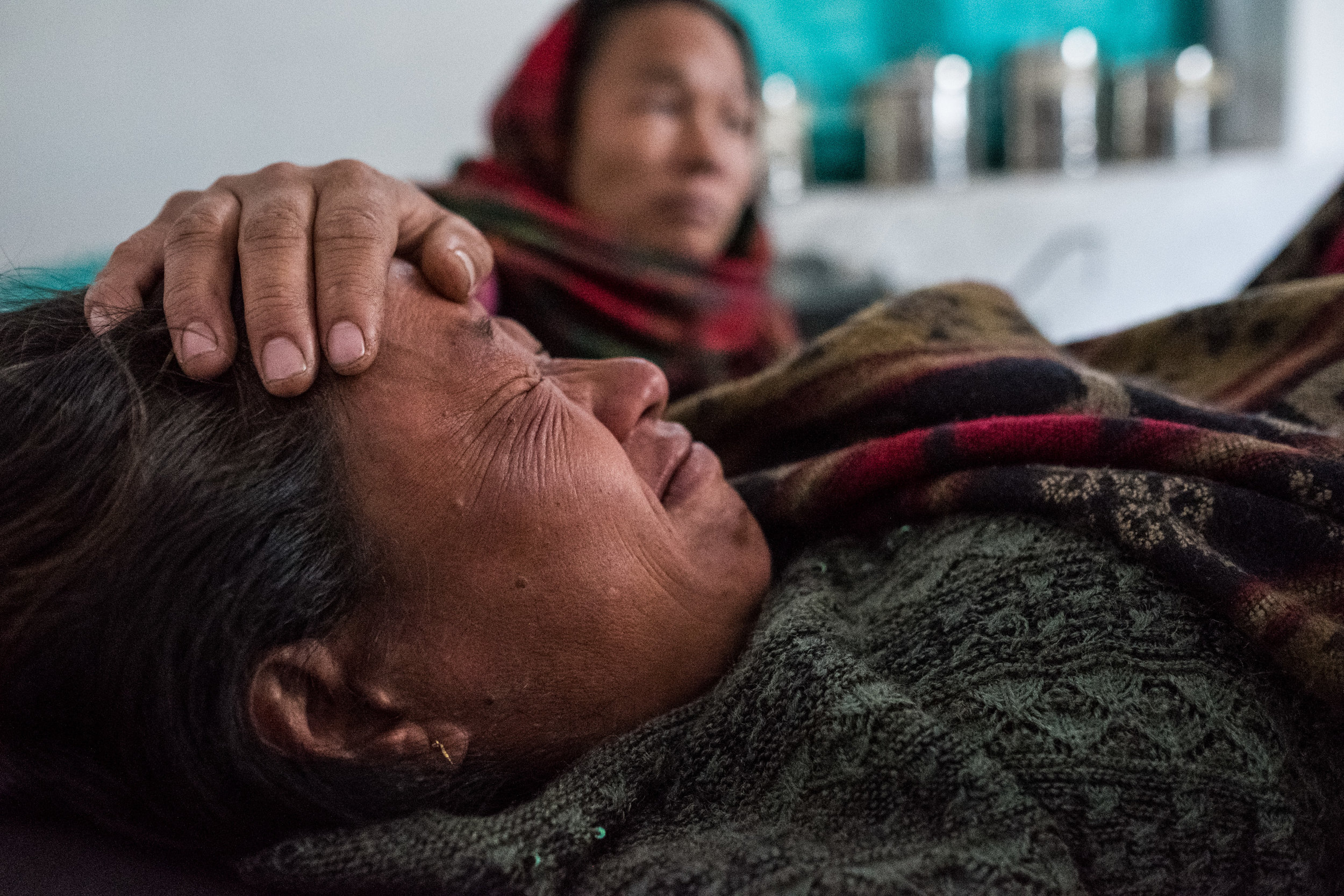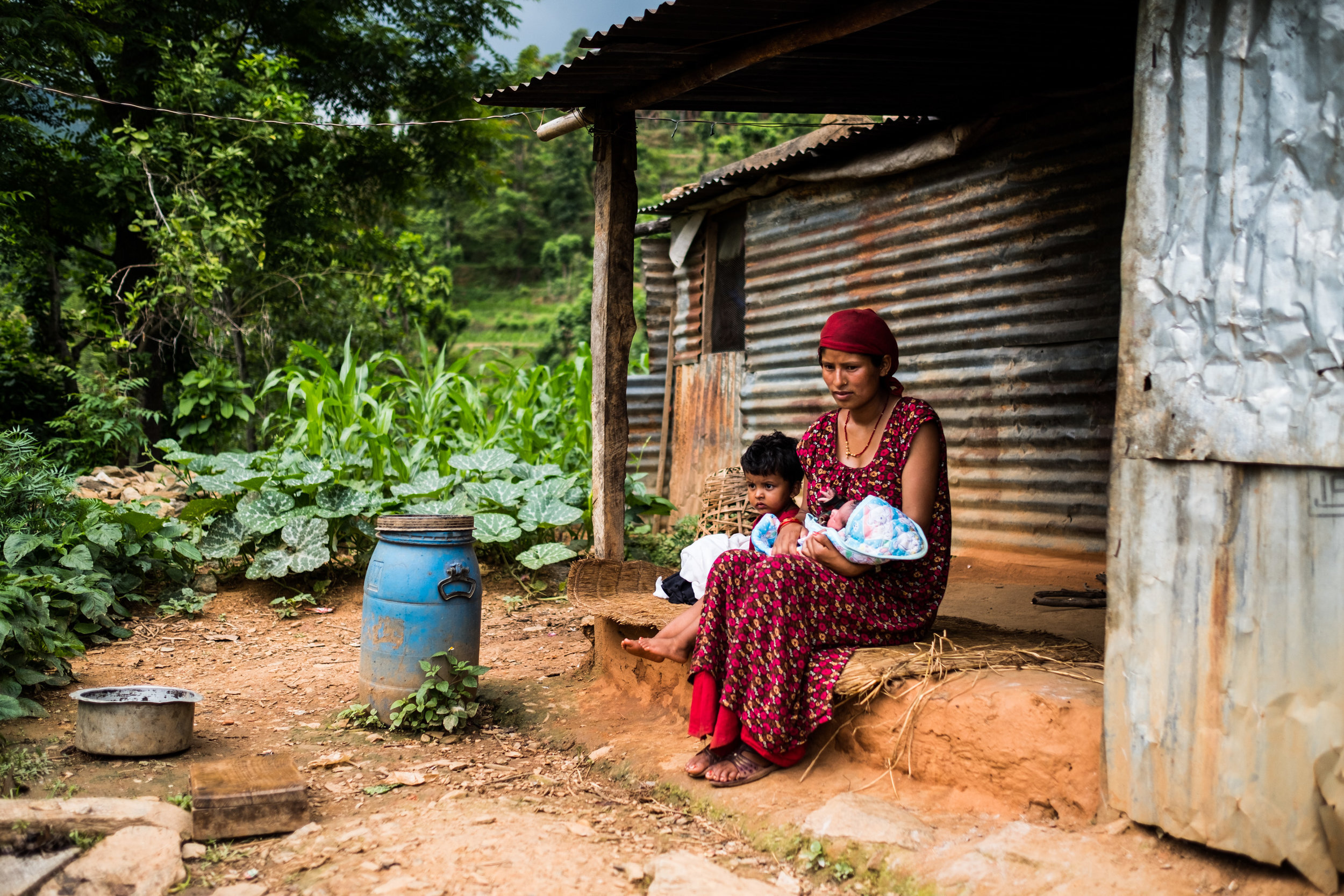
STORYTELLING & IMAGE LIBRARY FOR NGOS NYAGI & ONE HEART WORLDWIDE
NYAGI is a small, start-up style nonprofit focused on ultrasound education for healthcare providers in remote, rural, and resource-limited areas around the world. Access to effective healthcare is severely skewed towards high-income countries, and in low-income countries it’s a tragic fact that too many die of easily preventable complications simply because they can’t diagnose them. Ultrasound is an established, affordable, portable, safe, and effective diagnostic tool for everything from maternal health to emergency medicine—it is just difficult to learn. NYAGI’s founder, Boulder, Colorado physiatrist Dr. Cliff Gronseth, has been a passionate advocate for ultrasound since first learning it himself 20 years ago, and a few years ago he developed an iPad-based education platform through another company he started, 7D Imaging. NYAGI partners with other NGOs working in the locations they visit (like One Heart Worldwide in Nepal) and has now been to Nepal twice (2016 and 2017) and most recently Haiti.
Melamchi Health Clinic, Nepal
This 19-year-old new mother gave birth at home three days ago and has been bleeding since. Getting to the Melamchi Health Clinic included community members carrying her out of her village on a stretcher for half a day, then several hours on rough dirt roads. And she doesn't even live as remote as much of rural Nepal. The clinic was able to diagnose that she retained the placenta and arrange an ambulance to take her the remaining 3-4 hours to a hospital in Kathmandu for treatment.
Indira Khatri, 23, had her second child four days ago. She lives in Thokarpa, Nepal, an hour's walk (there are no roads) up the steeply terraced hillside to the nearest clinic, and a 4-5 hours drive, first on a rock-strewn and mud-slicked 'road' switchbacking down the valley, then the final stretch on mixed paved and dirt roads, to the nearest hospital. Her first child was born premature and luckily she was in Kathmandu at the time where her husband sometimes works as a truck driver. They stayed in intensive care for about a week but had to go home early when the big earthquake hit in 2015. She was worried about her second child and went regularly to the local clinic for checkups but in these resource-limited remote villages, even the best care is severely lacking even basic diagnostic and preventative tools like ultrasound.
Melamchi Health Clinic, Nepal
This 19-year-old new mother gave birth at home three days ago and has been bleeding since. Getting to the Melamchi Health Clinic included community members carrying her out of her village on a stretcher for half a day, then several hours on rough dirt roads. And she doesn't even live as remote as much of rural Nepal. The clinic was able to diagnose that she retained the placenta and arrange an ambulance to take her the remaining 3-4 hours to a hospital in Kathmandu for treatment.
Skilled Birth Attendant (SBA), Durgan Thebe, is 40 years old and has been based in the remote Tellok Health Post for 7 months. She left her 7 year old son and 13 year old daughter behind with family for the sake of their education and expects to remain in Tellok for another year or so. While it separates her family it is a good opportunity for specialized training and experience. Because of the remote postings, retention of SBAs in remote health posts is an issue. Tellok, Nepal.
Sarita Gautam lives in the remote village of Tellok. She has a 7-year-old son and is pregnant with her third child. She lost her second after complications forced her to try and get to a district hospital -- a journey that included over an hour walking before they could coordinate a five-plus hour ambulance ride to Taplejung. She lost the baby at the hospital. She is scared about the risk of complications with her third child and plans to proactively decide at around 8 months if she needs to plan to deliver at the regional hospital or can deliver at the local health post. Tellok, Nepal.
The birth of Ram Kumari's second child. Ram was in Tellok for an ultrasound check up the day before and returned to her village a half hour walk away. In the middle of the night she started labor and returned to Tellok. Skilled Birth Attendant (SBA), Durgan Thebe was going to refer her to the district hospital due to expected complications (previous history with vacuum birth) but the trip would have taken at least 9 hours or more on extremely rough, largely unmaintained dirt roads.
The birth of Ram Kumari's second child. Ram was in Tellok for an ultrasound check up the day before and returned to her village a half hour walk away. In the middle of the night she started labor and returned to Tellok. Skilled Birth Attendant (SBA), Durgan Thebe was going to refer her to the district hospital due to expected complications (previous history with vacuum birth) but the trip would have taken at least 9 hours or more on extremely rough, largely unmaintained dirt roads.
Waiting for prenatal ultrasound checkups at the Tellok Health Post. Tellok, Nepal.
The birth of Ram Kumari's second child. Ram was in Tellok for an ultrasound check up the day before and returned to her village a half hour walk away. In the middle of the night she started labor and returned to Tellok. Skilled Birth Attendant (SBA), Durgan Thebe was going to refer her to the district hospital due to expected complications (previous history with vacuum birth) but the trip would have taken at least 9 hours or more on extremely rough, largely unmaintained dirt roads.
Dr. Arold Scutt, Medical Director of Centre Médico-Social Petite Place Cazeau since 1991, setting up his new ultrasound machine for the first time.
Dr Cliff Gronseth, founder of NYAGI. In January and February 2019 NYAGI, a Boulder, Colorado-Based non-profit start up, traveled to Port-au-Prince, Haiti to work with Project Santé, a USAID-funded healthcare initiative.
In January and February 2019 NYAGI, a Boulder, Colorado-Based non-profit start up, traveled to Port-au-Prince, Haiti to work with Project Santé, a USAID-funded healthcare initiative. NYAGI’s role was to apply their accelerated, skills-sharing program for prenatal, breast, pulmonary, emergency medicine and orthopedic ultrasound with over 40 doctors, nurses, and midwives from across rural Haiti.
NYAGI Team 2 traveled to Nepal, outside Kathmandu working with One Heart Worldwide to train doctors, nurses, and Skilled Birth Attendants from across Nepal in ultrasound. NYAGI brings basic, lifesaving ultrasound to remote, rural, under-served communities through hands-on training and an interactive educational platform that leverages advancements in technology and decreases in costs.
Dr Cliff Gronseth, founder of NYAGI. In January and February 2019 NYAGI, a Boulder, Colorado-Based non-profit start up, traveled to Port-au-Prince, Haiti to work with Project Santé, a USAID-funded healthcare initiative. NYAGI’s role was to apply their accelerated, skills-sharing program for prenatal, breast, pulmonary, emergency medicine and orthopedic ultrasound with over 40 doctors, nurses, and midwives from across rural Haiti.
A new-born baby at Centre de Santé/Maternite de Lahoye, Haiti.
Bhim Kumari Limbu has been a Female Care Health Volunteer (FCHV) for over 20 years. She serves the rural communities around her home village of Limkhim and advocates for safer births through regular checkups and encouraging births to happen in an equipped healthcare facility and not at home. The young mother in the background was transferred several hours walk on a stretcher managed by local community members to the Limkhim Health Post to give birth the morning we arrived. Limkhim, Nepal.
Dr. Darline Molin Dol, Medical Director of the Project Medishare Centre de Santé/Maternite de Lahoye, Haiti, setting up her new ultrasound machine for the first time.
Indira Khatri, 23, had her second child four days ago. She lives in Thokarpa, Nepal, an hour's walk (there are no roads) up the steeply terraced hillside to the nearest clinic, and a 4-5 hours drive, first on a rock-strewn and mud-slicked 'road' switchbacking down the valley, then the final stretch on mixed paved and dirt roads, to the nearest hospital. Her first child was born premature and luckily she was in Kathmandu at the time where her husband sometimes works as a truck driver. They stayed in intensive care for about a week but had to go home early when the big earthquake hit in 2015. She was worried about her second child and went regularly to the local clinic for checkups but in these resource-limited remote villages, even the best care is severely lacking even basic diagnostic and preventative tools like ultrasound.




















